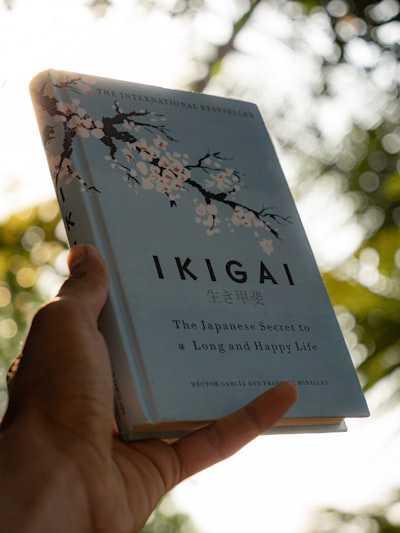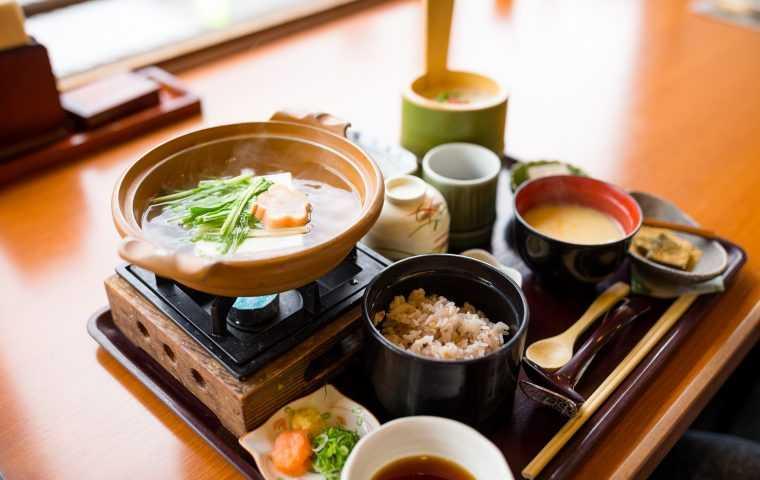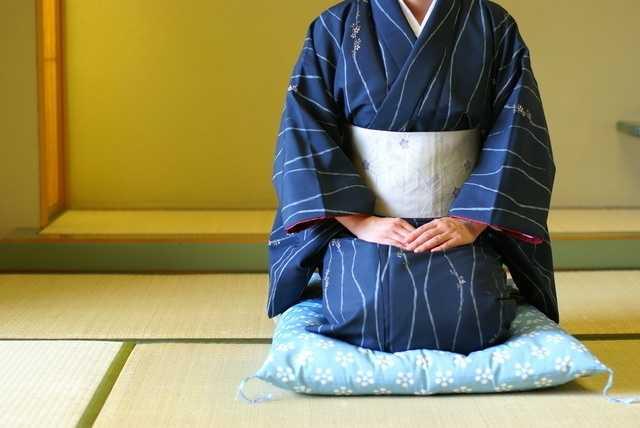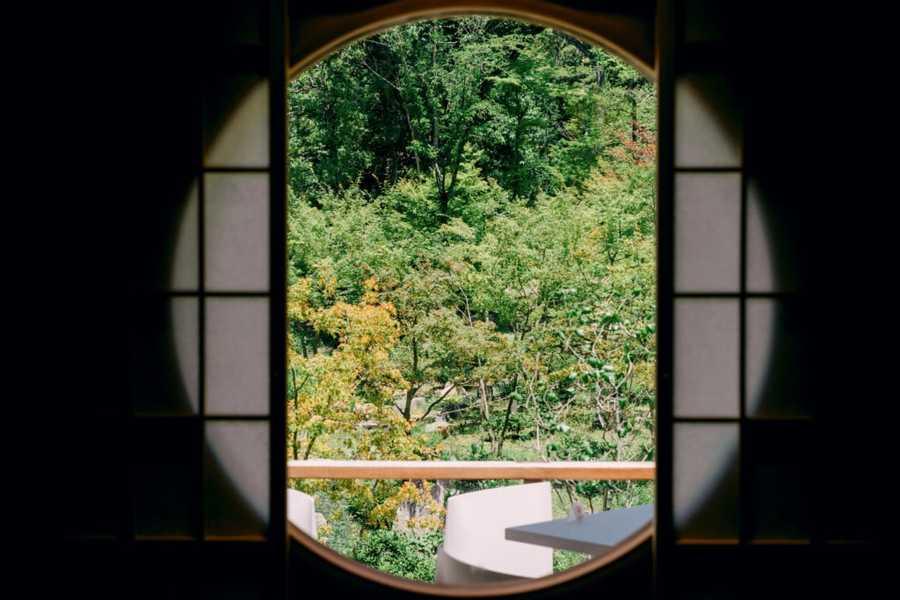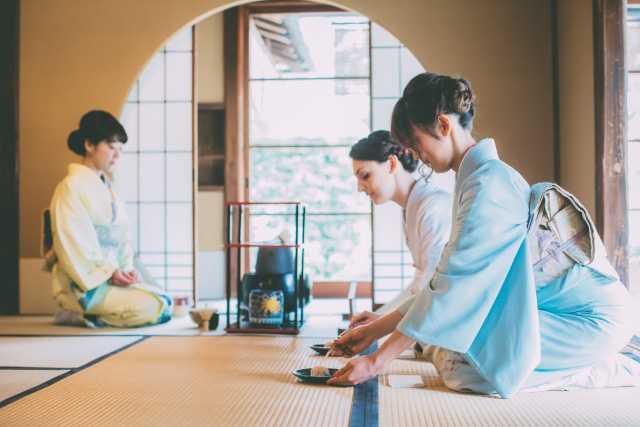Shirish Katkar's Key Ideas from Ikigai
by Héctor García, Francesc Miralles
Ideas, facts & insights covering these topics:
11 ideas
·85K reads
688
13
Explore the World's Best Ideas
Join today and uncover 100+ curated journeys from 50+ topics. Unlock access to our mobile app with extensive features.
IKIGAI
The Japanese concept, which translates as " the happiness of always being busy".
According to the Japanese,everyone has an ikigai - French philosopher might call a raison d'être(purpose).
Having a clearly defined ikigai brings satisfaction, happiness, and meaning to our lives. The purpose of this book is to help you find yours, and to share insights from Japanese philosophy on the lasting health of body, mind and spirit.
1.91K
14.2K reads
Book's Intention
There is village in south of Japan named Okinawa, where there are 24.55% people over the age of 100 for every 100,000 inhabitants - far more than global average.
Is ikigai the reason there are more centenarians in Okinawa than anywhere else? How does it inspire people to stay active until the very end? What is the secret to a long and happy life?
The purpose of the book is to bring the secrets of Japan's centenarians to you and give the tools to find your own ikigai.
1.74K
9.79K reads
The 80% Secret
One of the most common sayings in Japan is “Hara hachi bu,” which is said before or after eating and means “Fill your belly to 80 percent.” This is why stop eating when stomachs reach 80 percent of capacity, rather than overeating and wearing down bodies with long digestive processes that accelerate cellular oxidation.
The way food is served is also important. By presenting their meals on many small plates, the Japanese tend to eat less. Having five plates in front of you makes it seem like you are going to eat a lot.
1.96K
9.78K reads
Be mindful about reducing stress
Whether threats we perceive are real, stress is an easily identifiable condition that not only causes anxiety but is also highly psychosomatic, affecting everything from digestive system to skin.
The central premise of this stress-reduction method is focusing on the self: noticing our responses, even if they are conditioned by habit, in order to be fully conscious of them.
In this way, we connect with the here and now and limit thoughts that tend to spiral out of control.
One way to reach a state of mindfulness is through meditation, which helps filter the information that reaches us.
1.8K
8.03K reads
A lot sitting will age you
Spending too much time seated at work or at home not only reduces muscular and respiratory fitness, also increases appetite and curbs the desire to participate in activities.
Being sedentary can lead to hypertension, imbalanced eating, cardiovascular disease, and even certain kinds of cancer.
We can access a more active lifestyle that makes us feel better inside and out - we just have to add a few ingredients to our everyday habits:
- Walk to work
- Use your feet instead of an elevator
- Participate in social /leisure activities
- Replace your junk food with fruit
- Get the right amount of sleep
1.88K
7.46K reads
Sophisticated simplicity
What do Japanese artisans, engineers, Zen philosophy, and cuisine have in common? Simplicity and attention to detail.
It is not a lazy simplicity but a sophisticated one that searches out new frontiers, always taking the object, the body and mind, or the cuisine to the next level, according to one’s ikigai.
When someone sets out to create something, his/her responsibility is to use nature to give it “life” while respecting that nature at every moment. During this process, the artisan becomes one with the object and flows with it.
It's not man versus nature, but rather a union of the two.
1.79K
6.83K reads
Using flow to fing your ikigai
Ask yourself these questions:
- What do the activities that drive you to flow have in common?
- Why do those activities drive you to flow? For example, are all the activities you most like doing ones that you practice alone or with other people?
- Do you flow more when doing things that require you to move your body or just to think?
In the answers to these questions you might find the underlying ikigai that drives your life. If you don’t, then keep searching by going deeper.
Also, try new things that are not on the list of what makes you flow but that are similar and that you are curious about.
1.9K
6.14K reads
The here and now, and the impermanence of things
Both Buddhism and Stoicism remind us that the present is all that exists, and it is the only thing we can control. Instead of worrying about the past or the future, we should appreciate things just as they are in the moment, in the now.
We should never forget that everything we have and all the people we love will disappear at some point.
Being aware of the impermanence of things does not have to make us sad; it should help us love the present moment and those who surround us.
“All things human are short-lived and perishable,” Seneca tells us.
1.92K
5.64K reads
Beyond resilience: Antifragility
As Nicholas Taleb explains "we use the word fragile to describe people, things that are weakened when harmed, and the words robust and resilient for things that are able to withstand harm without weakening, but we don’t have a word for things that get stronger when harmed". Taleb proposes the term antifragile.
“Antifragility is beyond resilience or robustness. The resilient resists shocks and stays the same; the antifragile gets better.”
Catastrophes and exceptional circumstances offer good models for explaining antifragility.
1.85K
5.49K reads
Wabi-sabi and ichi-go ichi-e
Wabi-sabi is a Japanese concept that shows us the beauty of the fleeting, changeable, and imperfect nature of the world around us. Instead of searching for beauty in perfection, we should look for it in things that are flawed, incomplete.
Japanese concept is that of ichi-go ichi-e , which could be translated “This moment exists only now and won’t come again.” It is heard most often in social gatherings as a reminder that each encounter is unique and will never be repeated, meaning that we should enjoy the moment and not lose ourselves in worries about the past or the future.
1.97K
5.34K reads
The ten rules of ikigai
- Stay active; don’t retire.
- Take it slow.
- Don’t fill your stomach.
- Surround yourself with good friends.
- Get in shape for your next birthday.
- Smile.
- Reconnect with nature.
- Give thanks.
- Live in the moment.
- Follow your ikigai.
There is a passion inside you, a unique talent that gives meaning to your days and drives you to share the best of yourself until the very end.
If you don’t know what your ikigai is yet, as Viktor Frankl says, your mission is to discover it.
2.31K
6.23K reads
IDEAS CURATED BY
CURATOR'S NOTE
The book brings out the purpose or how to continue even without purpose with doing the mundane tasks like walking, doing dishes, cleaning house and many more things that will keep us busy and helps us enjoy life, whilst we search for our purpose. Because those who discover their ikigai have everything they need for a long and joyful journey through life.
“
Curious about different takes? Check out our Ikigai Summary book page to explore multiple unique summaries written by Deepstash users.
Shirish Katkar's ideas are part of this journey:
Learn more about personaldevelopment with this collection
The importance of physical activity
The role of genetics in lifespan
How to maintain a healthy diet
Related collections
Different Perspectives Curated by Others from Ikigai
Curious about different takes? Check out our book page to explore multiple unique summaries written by Deepstash curators:
7 ideas
Summit Nautiyal's Key Ideas from Ikigai
Héctor García
3 ideas
Arijeet Tripathi's Key Ideas from Ikigai
Héctor García
4 ideas
Arun shanmugaraj's Key Ideas from Ikigai
Héctor García, Francesc Miralles
Discover Key Ideas from Books on Similar Topics
10 ideas
The Book of Ichigo Ichie
Héctor García
14 ideas
Ganbatte!
Albert Liebermann
11 ideas
Things That Matter
Joshua Becker
Read & Learn
20x Faster
without
deepstash
with
deepstash
with
deepstash
Personalized microlearning
—
100+ Learning Journeys
—
Access to 200,000+ ideas
—
Access to the mobile app
—
Unlimited idea saving
—
—
Unlimited history
—
—
Unlimited listening to ideas
—
—
Downloading & offline access
—
—
Supercharge your mind with one idea per day
Enter your email and spend 1 minute every day to learn something new.
I agree to receive email updates
